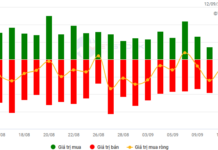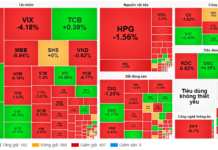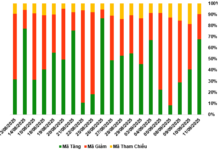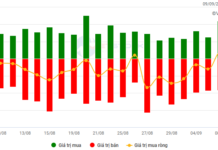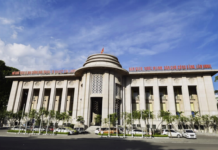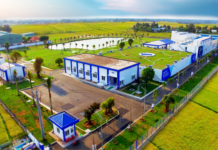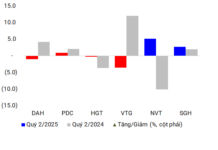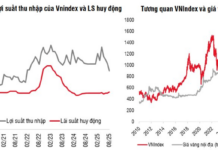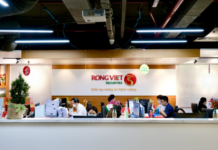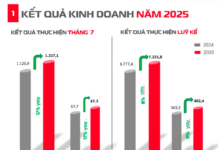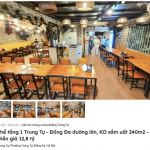Expediting Project Progress
Mr. Nguyen Dac Nhan, Deputy Director of the Land Department, Ministry of Natural Resources and Environment, shared that the 2024 Land Law introduces new provisions regarding decentralization and devolution in terms of land-use conversion, particularly for rice and forest lands. Specifically, the Provincial People’s Council now has the authority to make decisions, without having to seek approval from the Prime Minister as was previously required. This change expedites the progress of projects, including real estate developments.
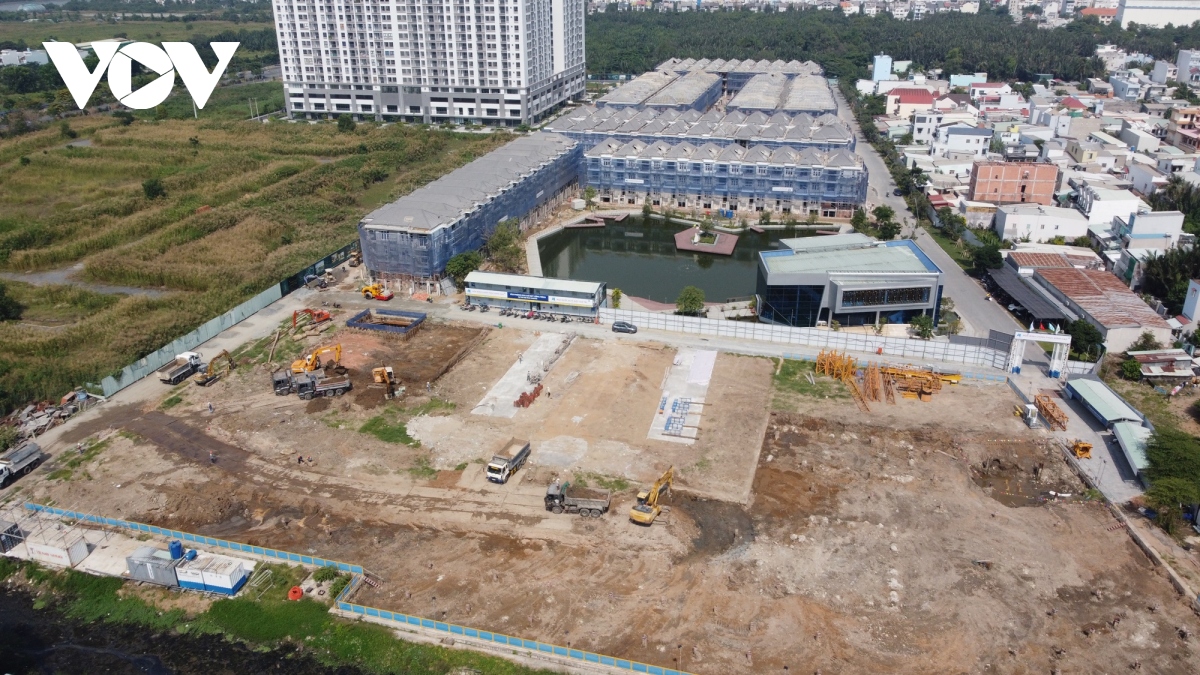
Many real estate projects are on hold due to legal obstacles (Photo: Duy Phuong)
In terms of land-use planning, the 2024 Land Law simplifies procedures by devolving approval authority to the Prime Minister, instead of the National Assembly as was previously the case. It also decentralizes land valuation, giving this authority to the People’s Committee at the district level, rather than the provincial level.
According to Mr. Nhan, the new law has removed the land price framework, allowing the Provincial People’s Council to determine land prices. Previously, the Prime Minister set the land price framework, which resulted in localities with large cities having land prices at the maximum allowed level but still unable to match market values: “The new land price schedule will take effect from January 1, 2026, allowing a one-year period for localities to build a new land price schedule based on market principles.”
Unblocking Legal Hurdles to Increase Supply
From an expert perspective, Dr. Pham Anh Khoi, Director of the Institute of Economic-Financial-Real Estate Research at Dat Xanh Services, noted that in the first half of 2024, investment capital inflows into the real estate market continued to grow. By the end of June, FDI into the market had increased by 61.5% compared to the same period in 2023. The real estate sector ranked second in FDI attraction.
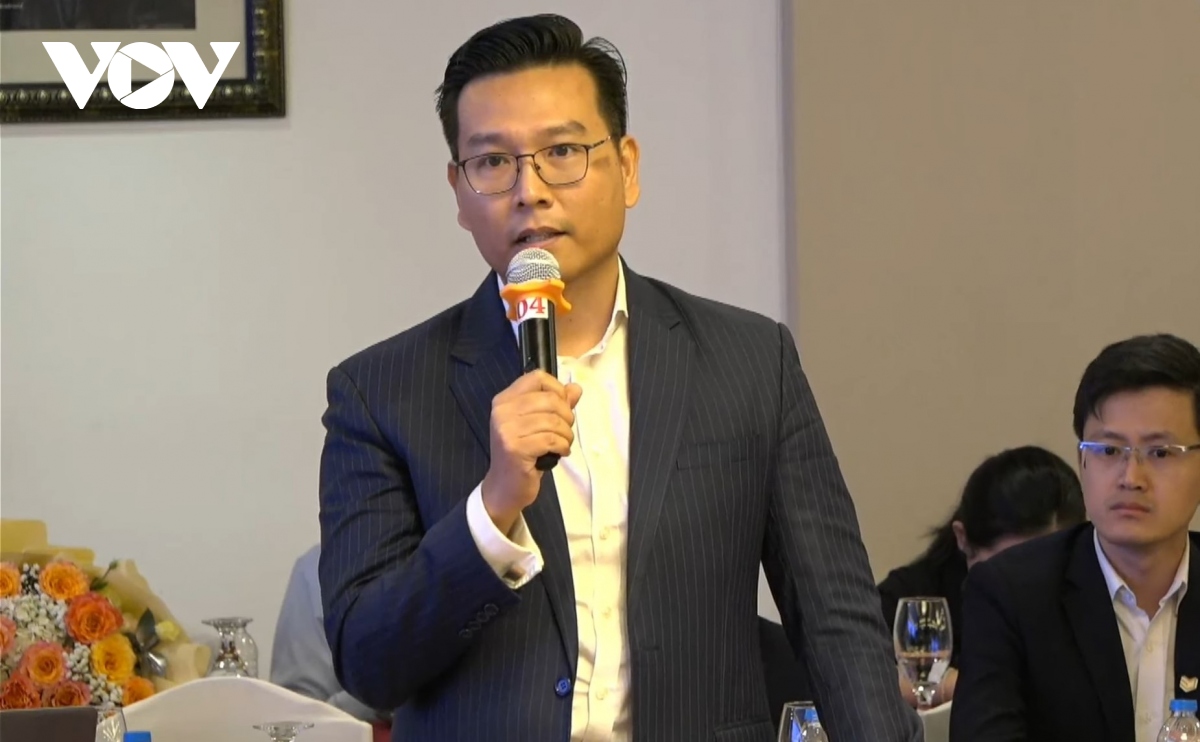
Dr. Pham Anh Khoi, Director of the Institute of Economic-Financial-Real Estate Research at Dat Xanh Services (Photo: Duy Phuong)
Dr. Khoi pointed out that real estate credit accounts for nearly 22% of the total outstanding credit in the economy. Additionally, the government is promoting the development of social housing, establishing a fund for social housing development, and directing the study of bond issuance to support interest rates for investment in this sector.
Dr. Khoi suggested: “We should focus on developing high-quality developers and diversifying their financing options. Over-reliance on customer or bank capital should be avoided.”
Mr. Le Hoang Chau, Chairman of the Ho Chi Minh City Real Estate Association, expressed his hope that the three newly passed laws will help resolve legal obstacles, leading to an abundant and sustainable supply of real estate to the market.
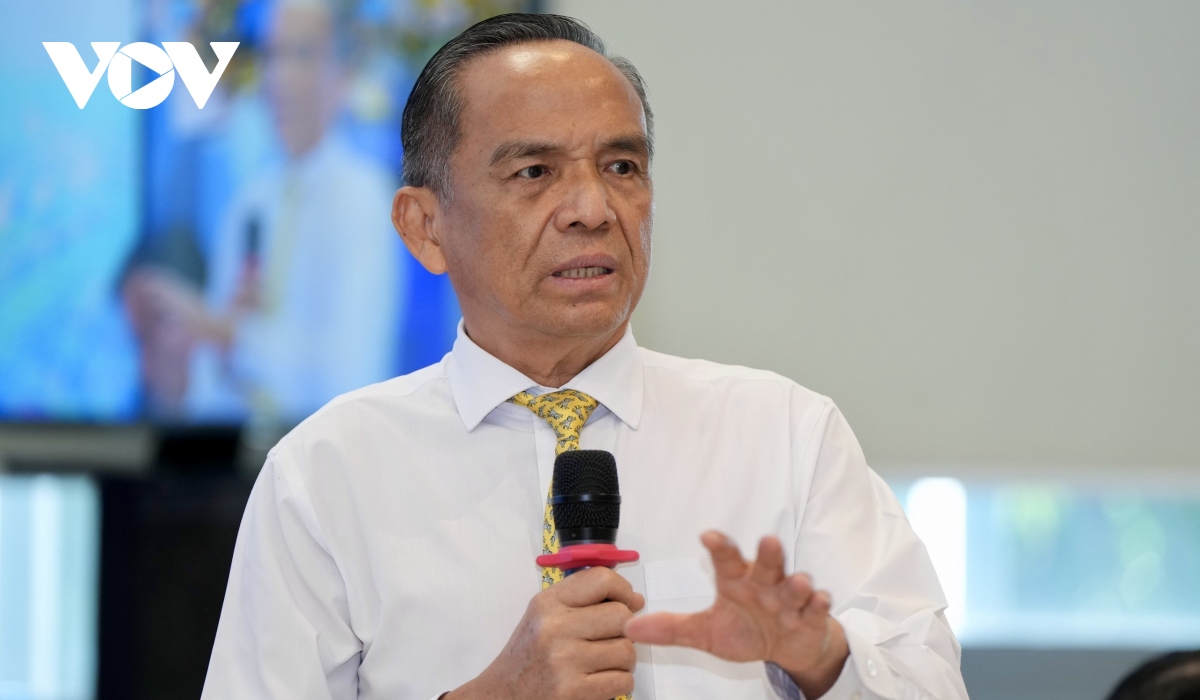
HoREA Chairman Le Hoang Chau (Photo: Duy Phuong)
Mr. Chau emphasized that in addition to social housing, there is also a demand for mid-range and high-end properties. The challenge lies in finding solutions to make housing prices more reasonable, rather than allowing them to continuously increase as they do currently. A synchronized and unified legal framework is necessary for the market to develop in a green, eco-friendly, and people-oriented direction.
Mr. Chau acknowledged that the real estate market still faces difficulties, but he believes that these challenges will gradually diminish as the investment and business environment improves, driven by positive changes in the legal system: “We recognize the efforts of enterprises to not solely pursue their own profits but also accompany investors and customers.”
The simultaneous amendment and passage of three laws directly impacting housing and land projects are considered a “boost” for businesses to overcome obstacles, facilitating project implementation and promoting healthy and transparent market development.
Astonishingly high price for old and dilapidated apartment buildings reaching nearly 200 million VND/m2, rivaling the most luxurious condominiums in Hanoi
Old collective apartments with prices starting from 100 million VND/m2 are usually the first-floor units that can be used for commercial purposes, while the upper-floor units are priced at 60-80 million VND/m2 for residential purposes.

